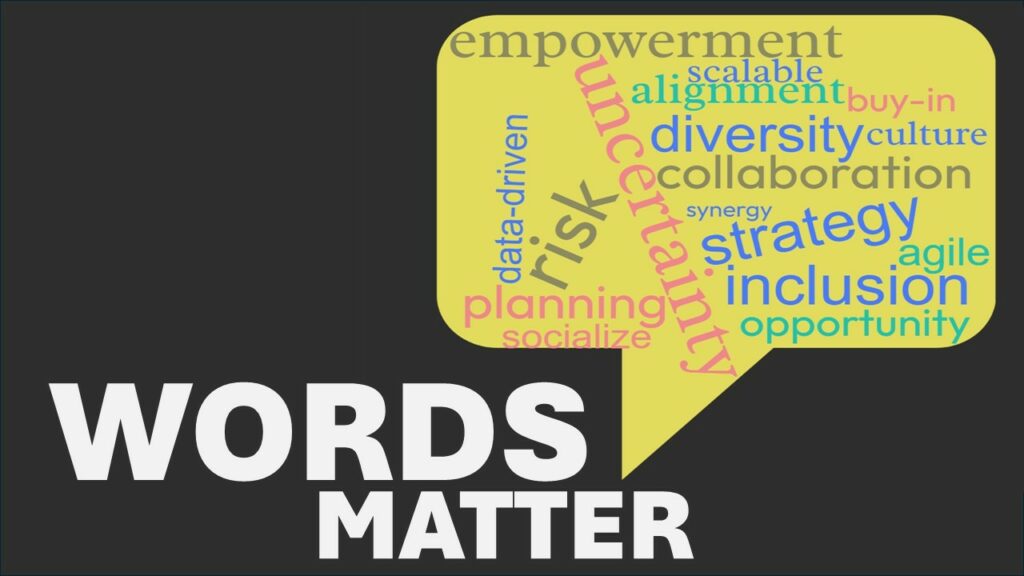I have a passion for how people use words and the process by which listeners make meaning from those words. Why the interest? Because words matter. The choice of one poor word can quickly send a meeting down an unproductive path.
WHAT’S THE ISSUE?
For instance, take the word “strategy.” No other word has been used so frequently in business books or so routinely on the covers of business magazines. Yet despite this word’s popularity, different people use it to mean different things, and these differences can significantly compromise meeting outcomes.
So, you can imagine my interest when I came across a Scientific American article entitled “People Have Very Different Understandings of Even the Simplest Words” by Simon Makin. Makin takes a neurological and cognitive perspective in describing how differently people can interpret terms such as “risk” and “fairness.” Citing the results of several neurological studies, Makin writes that when people use abstract concepts in group settings, they “… generally overestimate the degree to which other people will share the same concept as them when they’re speaking.” We are using the same words but we are thinking quite differently.
People define words such as “empowerment,” “diversity,” and “uncertainty” on the basis of “lifetimes of experience, practices, or beliefs,” according to Makin. Those words are tied to your identity and are strongly connected to your emotional frames. So these kinds of words can produce vastly dissimilar patterns of neural activity when compared to the neural patterns of someone for whom the words carry little emotional weight.
How’s that for a meeting hurdle to overcome? And handing out a definition for all to follow might not be the answer.
Kris DeMeyer is a neuroscientist involved in climate change discussions. His research showed how economists and scientists have nonidentical “semantic presentations in the the brain” when using words such as “risk” and “uncertainty.” They are speaking the same words but unaware of their different brain representations. That’s a rather problematic phenomenon when seeking alignment regarding the risks and uncertainties associated with climate change!
WHAT’S THE RECOMMENDATION?
Do you lead risk or uncertainty assessment workshops? You might want to get a reading on the various interpretations of certain words prior to starting your meeting. Test for differences by having people write down what that word means to them or what images come to mind. Then read the various responses to the group and explore the differences in meaning and the implications of those differences. I do the same with words like “empowerment,” “inclusion,” “collaboration,” and “user-friendly.” Any of those words can produce radically different frames of meaning.
If I’m lucky, I find another word that works better if the original is too problematic. After all, words are free! Demeyer also recommends finding another word. His research showed that trying to reshape a person’s set definition of conceptual words rarely succeeds.
WHAT’S THE TAKEAWAY?
Words matter! Be mindful of abstract words like strategy, risk, uncertainty, or collaboration. They can have radically different meanings for those that are present. And these differences in mean-making can absolutely compromise your meeting outcome. Take the time to ensure clarity and alignment prior to diving into deep discussions.

